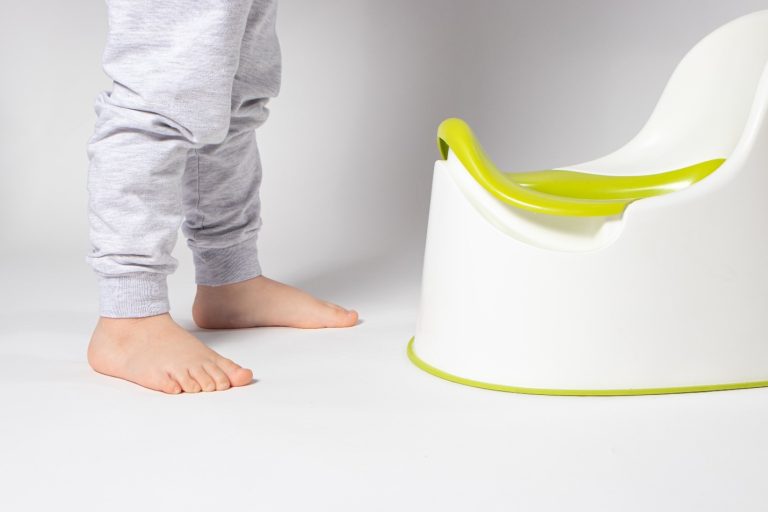Child Constipation - What To Do

Constipation in Baby/Toddler/Children
On the journey of parenthood, one common worry is dealing with constipation in your baby, child, or toddler. If you have found yourself wondering, “Child constipation – what to do?” – rest assured, you are in the right place.
Constipation is a common gastrointestinal problem that affects children of all ages. While it may seem minor, chronic constipation can significantly impact your child’s well-being and overall quality of life.
Constipation vs Healthy Digestion
What is Constipation?
Constipation occurs when the natural rhythm of bowel movements is disrupted. This makes it hard to pass stool on a regular basis.
The Underlying Causes of Child Constipation
Constipation in babies/toddlers/children results from a combination of factors, including dietary habits, toilet training, psychological influences, medications, and underlying medical conditions. Recognising and understanding these elements is the first step in addressing child constipation.
Some child constipation causes include:
- Dietary Habits: A diet low in fibre and fluids can lead to the formation of hard, dry stools that are challenging to pass.
- Toilet Training: Improper or stressful toilet training practices can instill anxiety in children about using the toilet, which can lead to stool withholding.
- Psychological Influences: Stress, anxiety, or emotional issues can disrupt the crucial connection between the brain and the gut, affecting regular bowel habits.
- Medications: Some medications, such as pain relievers, antacids, and iron supplements, can slow down the digestive process, which can cause constipation.
- Underlying Medical Conditions: Constipation may be a symptom of underlying medical conditions such as hypothyroidism, irritable bowel syndrome (IBS), or Hirschsprung’s disease, where specific nerve cells are missing from the intestine, causing severe constipation in children.

Risk Factors
Certain factors can increase a child’s vulnerability to constipation, leading to severe constipation if neglected or overlooked. It is essential to be aware of the following risk factors:
- Family History: A family history of constipation may indicate a genetic tendency.
- Age: Constipation is more common in toddlers and preschool-aged children who are still learning to control their bowels.
- Gender: It tends to be more prevalent in girls, although it can affect children of any gender.
- Low Physical Activity: A sedentary lifestyle can contribute to constipation, as physical activity stimulates bowel motility.
Signs and Symptoms
Recognising the signs and symptoms of constipation in children is the key to early intervention. These child/toddler constipation symptoms alert parents to act early. Common indicators include:
- Infrequent Bowel Movements: Children with constipation often have fewer than three bowel movements in 1 week.
- Hard, Dry Stools: Stools that are difficult to pass and may cause pain or discomfort.
- Pain During Bowel Movements: Children may experience pain or crying while trying to have a bowel movement.
- Abdominal Discomfort: Complaints of abdominal pain or bloating, especially after meals.
- Stool Accidents: Occasional stool leakage or “skid marks” in underwear, a result of stool accumulation in the rectum.
Diagnosis of Child Constipation
Now that you have a better idea of child constipation, it is important to know how the diagnosis of this condition works. A full assessment must be done by a paediatrician or healthcare provider, which will include the following:
- Medical History: The paediatrician will gather information about the child’s diet, toilet habits, and any family history of constipation
- Physical Examination: A physical examination may reveal signs such as abdominal tenderness or a mass of stool that can be felt in the abdomen
- Evaluation of Symptoms: The provider will inquire about the child’s symptoms and may use a scoring system (like the Rome IV criteria for paediatric functional constipation)
- Laboratory Tests: In some cases, blood tests or imaging studies like abdominal X-rays may be necessary to rule out underlying medical conditions.
Differential Diagnosis
This condition can mimic other medical conditions, and a proper differential diagnosis is essential. Some similar conditions include:
- Encopresis: Or stool soiling, happens when stools leak out of the body involuntarily. It is often a sign of chronic constipation.
- Cow’s Milk Protein Allergy: Allergic reactions to cow’s milk can cause symptoms resembling constipation
- Anal Fissures: Painful tears in the skin around the anus can lead to discomfort during bowel movements
- Hirschsprung’s Disease: A birth defect in which some nerve cells are missing from the intestine, causing severe constipation.
Management Options for Child Constipation in Singapore
Once diagnosis of constipation is confirmed, management options in Singapore typically include:

- Dietary Changes: Encouraging a diet rich in fibre from fruits, vegetables, and whole grains can help soften stools and promote regular bowel movements
- Fluid Intake: Making sure enough fluids is taken, especially water, can help prevent stool hardening
- Toilet Training: Proper toilet training techniques and encouragement will guide children properly in passing motion without withholding stool
- Medications: In some cases, using laxatives or stool softeners can effectively relieve constipation on a short-term basis
- Behavioural Therapy: Counselling or therapy may benefit children with psychological factors contributing to constipation
- Regular Toilet Routine: Establishing a toilet routine, such as having the child sit on the toilet at the same time each day, can help create healthy bowel habits
- Biofeedback Therapy: In cases of severe chronic constipation, biofeedback therapy may improve sensation in the rectal region and it’s muscle coordination.
When it comes to your child’s health, choosing the right paediatrician is essential. A specialised paediatric professional understands the unique healthcare needs of children, including common issues like constipation.
A comprehensive and compassionate approach to pediatric care ensures you are well-informed and involved in your child’s healthcare journey. You can be assured of your child’s health when conditions like child constipation occur. Proper care allows for a full recovery and future prevention, ensuring that such a condition does not worsen into severe constipation. This improves your child’s quality of health.
Conclusion
Constipation in children is a common condition with a potentially significant impact on their well-being. Understanding the causes, risk factors, signs and symptoms, diagnosis, and management options is crucial for parents and caregivers. If your child experiences chronic constipation, consult your paediatrician or visit any of our SBCC Baby & Child Clinics, for a thorough evaluation and personalised treatment plan to ensure their overall health and comfort.
With proper management and support from healthcare professionals, most children can overcome constipation and enjoy a healthier, more comfortable life. By addressing constipation early and comprehensively, you can help your child maintain optimal digestive health and well-being. SBCC Baby & Child Clinic is here to assist you every step of the way.









